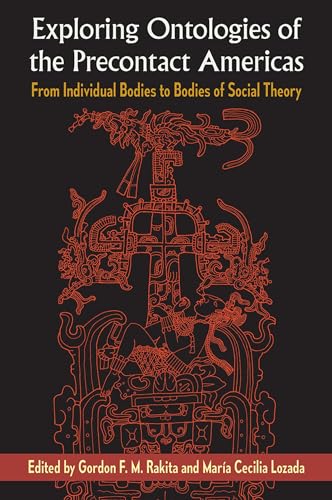

Most ebook files are in PDF format, so you can easily read them using various software such as Foxit Reader or directly on the Google Chrome browser.
Some ebook files are released by publishers in other formats such as .awz, .mobi, .epub, .fb2, etc. You may need to install specific software to read these formats on mobile/PC, such as Calibre.
Please read the tutorial at this link. https://ebooknice.com/page/post?id=faq
We offer FREE conversion to the popular formats you request; however, this may take some time. Therefore, right after payment, please email us, and we will try to provide the service as quickly as possible.
For some exceptional file formats or broken links (if any), please refrain from opening any disputes. Instead, email us first, and we will try to assist within a maximum of 6 hours.
EbookNice Team

Status:
Available4.7
7 reviewsThis volume demonstrates how researchers in bioarchaeology and mortuary archaeology can work to better understand concepts of life and death in past societies of the Indigenous Americas. Through case studies that apply the “ontological turn” to human funerary and skeletal remains, contributors set aside Western views of reality, nature, and personhood to explore how people of various cultures understood existence and the human body.
Contributors examine mortuary records from Inuit groups in Labrador and Greenland, Hopewell culture in the Lower Illinois River Valley, and Weeden Island and Puebloan traditions in the United States Southeast and Southwest. They look at the Paquimé community in Mexico, iconography of the Maya civilization, the demographics of Inka populations, and an ancient village on the Amazon River in Brazil. With attention to the viewpoints of these cultures, these essays deconstruct the boundaries between human remains and other interred artifacts, the living and the dead, and other binaries rooted deeply in Western science.
Exploring Ontologies of the Precontact Americas reminds readers that their own ontological perspectives affect how they interpret the past. By considering diverse, non-Western worldviews and engaging with novel social theories of the body, this volume inspires new understandings of precontact societies.
Contributors: Gordon F. M. Rakita | Pamela Geller | Jason L. King | Sarah Jackson | Jane Buikstra | Robert Pickering | Peter Whitridge | John Krigbaum | Neill J. Wallis | Adrianne Offenbecker | Avelino Gambim Júnior | Bethany L. Turner | Mari Kleist | María Cecilia Lozada | Debra L. Martin | Kyle Waller | James L. Fitzsimmons | J. Christina Freiberger